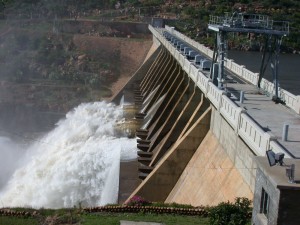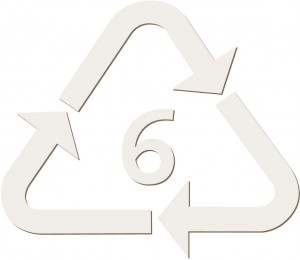 From < 1950 to 1990 there was an unprecedented pace and scale of global economic growth with a quintupling of global economic output - two-and-a-half month's global production in 1990 equaled that of the entire decade of the 1950s, and there was a 12-times increase in international trade. This period, known as the Economic Era, was powered by an unparalleled consumption of renewable and non-renewable resources.
The Economic Era was defined by the production and consumption of a greater and more diverse range of goods than the world had ever seen before. Disposable, throw-away, time-reducing and labor-saving became powerful marketing bywords across a wide array of products, and a Western value system devoted to materialism rated these conveniences as having greater importance than the raw materials required to produce them - deforestation, soil erosion and aquifer depletion had yet to become the global issues they are now.
From < 1950 to 1990 there was an unprecedented pace and scale of global economic growth with a quintupling of global economic output - two-and-a-half month's global production in 1990 equaled that of the entire decade of the 1950s, and there was a 12-times increase in international trade. This period, known as the Economic Era, was powered by an unparalleled consumption of renewable and non-renewable resources.
The Economic Era was defined by the production and consumption of a greater and more diverse range of goods than the world had ever seen before. Disposable, throw-away, time-reducing and labor-saving became powerful marketing bywords across a wide array of products, and a Western value system devoted to materialism rated these conveniences as having greater importance than the raw materials required to produce them - deforestation, soil erosion and aquifer depletion had yet to become the global issues they are now.
 In response to widespread global resource depletion, and as a way of guarding against an ecologically impoverished future, the period beginning in the 1990s, known as the Environmental Era, has been characterized by a shift in focus from economic growth to resource safeguarding and sustainability – conservation and thriftiness as defined by the big Rs: Rethink, Reduce, Recycle, Reuse. This has brought many changes:
In response to widespread global resource depletion, and as a way of guarding against an ecologically impoverished future, the period beginning in the 1990s, known as the Environmental Era, has been characterized by a shift in focus from economic growth to resource safeguarding and sustainability – conservation and thriftiness as defined by the big Rs: Rethink, Reduce, Recycle, Reuse. This has brought many changes:
– We are increasingly scrutinizing, evaluating and judging governments, institutions, corporations and individual people and acting on those judgments.
– With social media bringing an instant awareness of issues in many parts of the globe, the problems of others have become our own and solutions for a broader range of social and environmental issues are occupying our time and attention.
 – Many of us are experiencing an increased desire for value-defending work and socially-responsible contribution.
– Many of us are experiencing an increased desire for value-defending work and socially-responsible contribution.
– Many of us are no longer buying into the concept of unconstrained consumerism, choosing instead to live small.
– With increased awareness about pollution, many of us are managing our waste more responsibility.
– With increased awareness about climate change, many of us are reducing our carbon footprint in every way we can.
In many fundamental and important ways our global focus is changing. As massive changes being wrought in the 21st Century intensify this process, we can expect a further recalibration of our values, ethics, belief patterns, and ways of relating to the world in the time ahead. Who says we don’t live in interesting times?